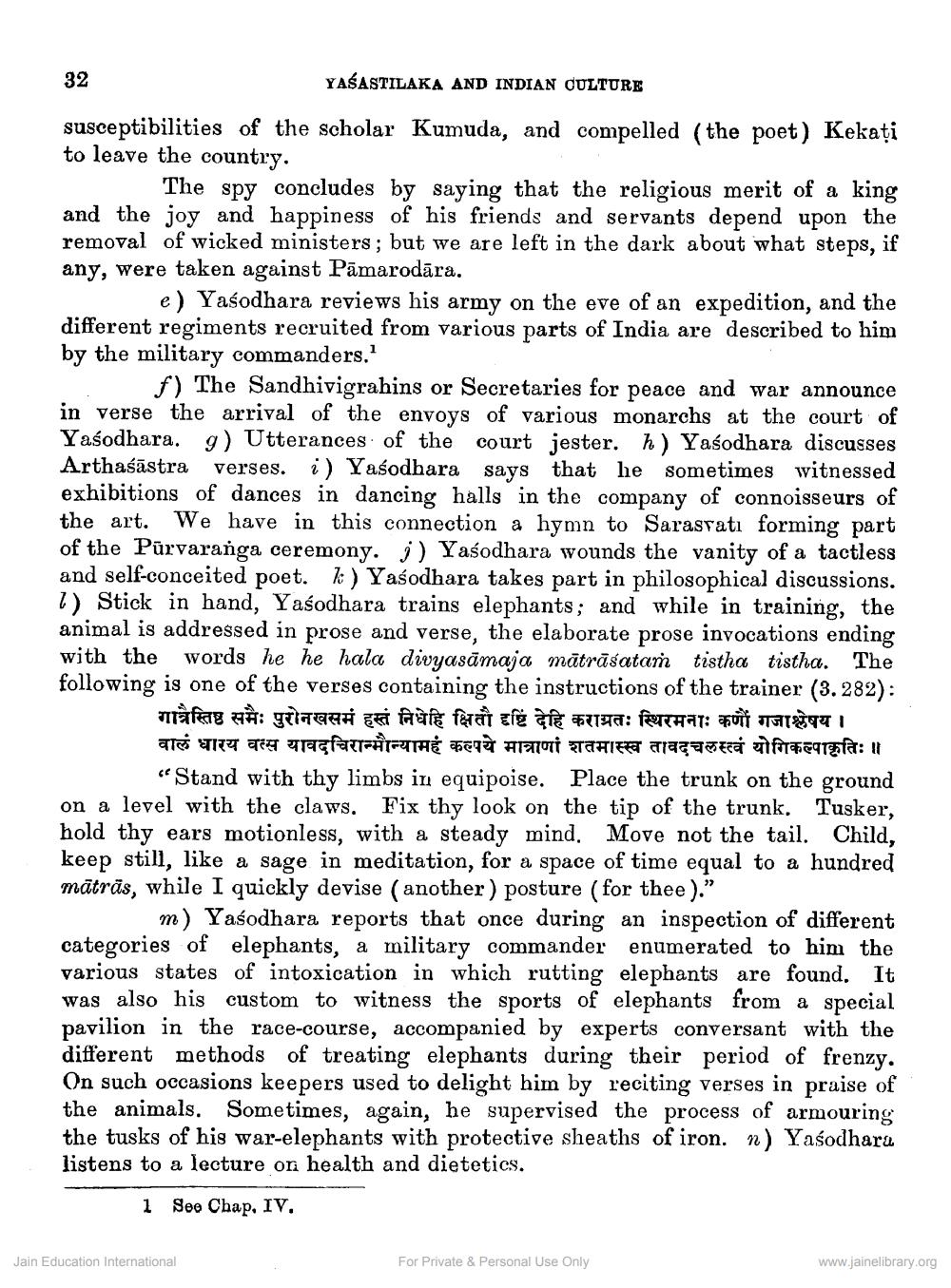________________
32
YASASTILAKA AND INDIAN CULTURE
susceptibilities of the scholar Kumuda, and compelled (the poet) Kekați to leave the country.
The spy concludes by saying that the religious merit of a king and the joy and happiness of his friends and servants depend upon the removal of wicked ministers; but we are left in the dark about what steps, if any, were taken against Pāmarodāra.
e) Yasodhara reviews his army on the eve of an expedition, and the different regiments recruited from various parts of India are described to him by the military commanders.
f) The Sandhivigrahins or Secretaries for peace and war announce in verse the arrival of the envoys of various monarchs at the court of Yasodhara. 9) Utterances of the court jester. h) Yasodhara discusses Arthaśāstra verses. i) Yasodhara says that he sometimes witnessed exhibitions of dances in dancing halls in the company of connoisseurs of the art. We have in this connection a hymn to Sarasvati forming part of the Pūrvaranga ceremony. ;) Yasodhara wounds the vanity of a tactless and self-conceited poet. k) Yasodhara takes part in philosophical discussions. 1) Stick in hand, Yasodhara trains elephants; and while in training, the animal is addressed in prose and verse, the elaborate prose invocations ending with the words he he hala divyasämaja mātrāśatam tistha tistha. The following is one of the verses containing the instructions of the trainer (3.282):
गात्रैस्तिष्ठ समैः पुरोनखसमं हस्तं निधेहि क्षितौ दृष्टिं देहि कराग्रतः स्थिरमनाः कौँ गजाश्लेषय । वालं धारय वत्स यावदचिरान्मौन्यामहं कल्पये मात्राणां शतमास्स्व तावदचलस्त्वं योगिकल्पाकृतिः॥
“Stand with thy limbs in equipoise. Place the trunk on the ground on a level with the claws. Fix thy look on the tip of the trunk. Tusker, hold thy ears motionless, with a steady mind. Move not the tail. Child, keep still, like a sage in meditation, for a space of time equal to a hundred mātrās, while I quickly devise (another) posture (for thee).”
m) Yasodhara reports that once during an inspection of different categories of elephants, a military commander enumerated to him the various states of intoxication in which rutting elephants are found. It was also his custom to witness the sports of elephants from a special pavilion in the race-course, accompanied by experts conversant with the different methods of treating elephants during their period of frenzy. On such occasions keepers used to delight him by reciting verses in praise of the animals. Sometimes, again, he supervised the process of armouring the tusks of his war-elephants with protective sheaths of iron. 2) Yasodhara listens to a lecture on health and dietetics.
1
See Chap. IV.
Jain Education International
For Private & Personal Use Only
www.jainelibrary.org




